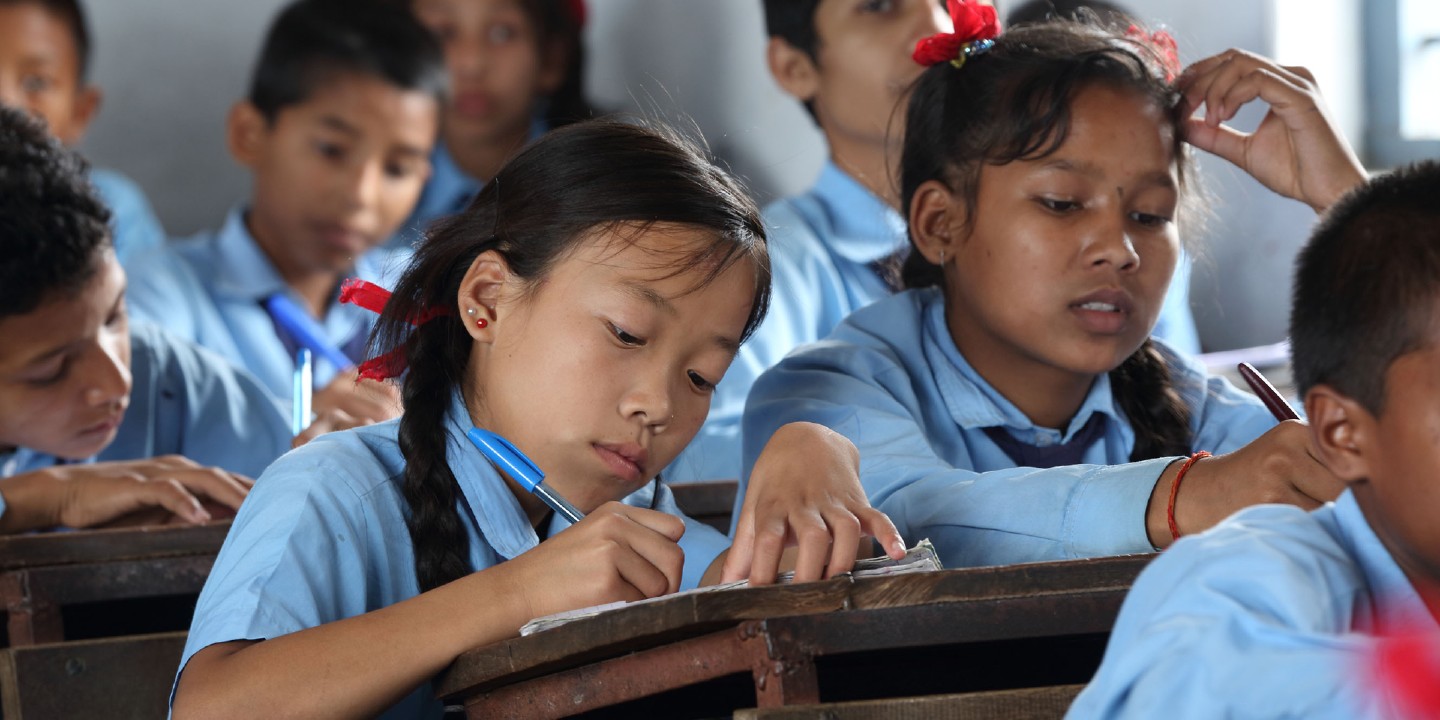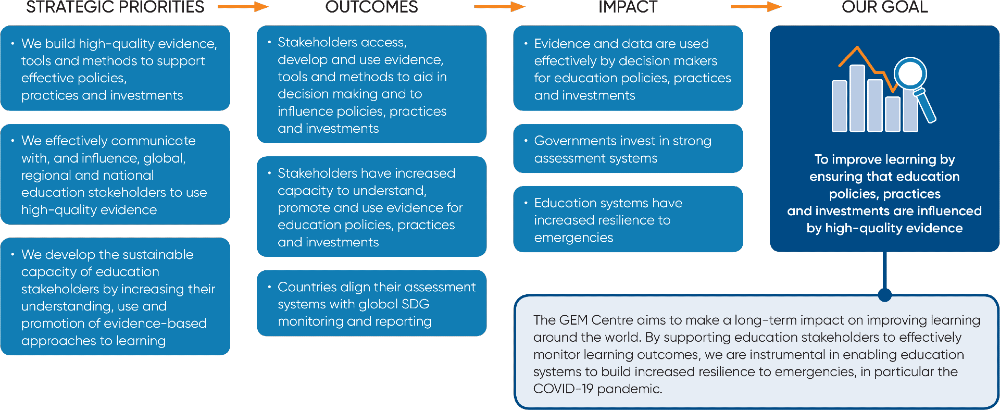
How the GEM Centre creates impact
Research 1 Nov 2021 4 minute readThe third phase of the GEM Centre’s strategic partnership between ACER and DFAT builds on Pathways to Impact to improve learning around the globe.
Since it was established in 2013, the Global Education Monitoring (GEM) Centre has been committed to defining, measuring and understanding learning to support the monitoring and improvement of education worldwide, and specifically in the Indo-Pacific region.
Last year, after two successful phases, the Australian Council for Educational Research (ACER) and the Australian Government’s Department of Foreign Affairs and Trade (DFAT) committed to a third phase of the GEM Centre partnership. The partners have outlined how, in the next three years, the GEM Centre is focussing on improving learning by ensuring that education policies, practices and investments are influenced by high-quality evidence.
‘The GEM Centre promotes shared global understandings and agreed definitions of what is valued in learning and how learning progresses. Working closely with global, regional and national education stakeholders, we provide technical support to enable monitoring of progress towards SDG4 by 2030’ says Ray Adams, Head of the GEM Centre.
The GEM Centre partnership from 2020 to 2023 is underpinned by three strategic priorities.
-
To build high-quality evidence, tools and methods to support effective policies, practices and investments.
-
To effectively communicate with, and influence global, regional and national education stakeholders to use high-quality evidence.
-
To develop the sustainable capacity of education stakeholders by increasing their understanding, use and promotion of evidence-based approaches to learning.
 Image (c) ACER/GEM Centre
Image (c) ACER/GEM Centre
The GEM Centre partnership builds on ACER’s expertise in assessment design and implementation, and experience working in low- and middle-income countries, and on DFAT’s extensive experience in promoting sustainable and inclusive economic growth, stability and poverty reduction in the Indo-Pacific region.
‘As education stakeholders around the world continue to be concerned that the COVID-19 pandemic has magnified disparities in education systems and is further widening the learning gap for the most disadvantaged, the GEM Centre’s work to support education stakeholders to effectively monitor learning outcomes is more important than ever,’ explains Adams.
‘The long-term, strategic partnership between ACER and DFAT ensures we can continue to influence education stakeholders in the years ahead.'
Being able to measure where learners are at and supporting them to progress to the next level is vital to help learners overcome disruptions to their education. In the next decade, the GEM Centre will be instrumental in enabling education systems to build increased resilience to emergencies due to lessons learned from the COVID-19 pandemic.
Thanks to the methods developed by the GEM Centre that enable countries to use their own regional or national learning assessment results to monitor progress towards Sustainable Development Goal 4, countries in the Pacific Islands and Southeast Asia are able to report against global proficiency levels in reading and mathematics for the first time.
Through Pathways to Impact and working collaboratively with stakeholders at a global, regional and national level, the GEM Centre will continue to enable education systems to measure where learners are at, monitor their progress, and analyse evidence of how best to support learning, to help improve the quality of education for children around the world.
Find out more:
To learn more about the GEM Centre’s work and how it will create impact in phase three, download the Pathways to Impact brochure.
